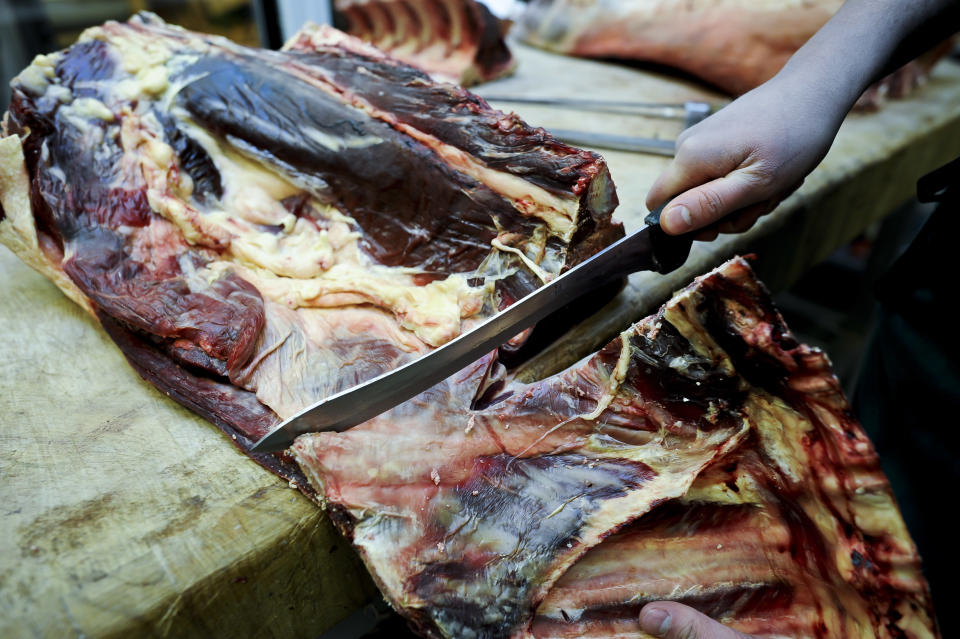'Meat tax' is inevitable to tackle climate and health crises, say experts

A ‘meat tax’ is inevitable if we want to curb climate change and tackle a growing health crisis, experts say.
If governments are serious about wanting to address surging incidents of obesity, diabetes and cancer, as well as trying to keep rising global temperatures in check, people must be discouraged from consuming meat, analysts for investors managing over $4tn of assets argue.
Rearing livestock such as cows, sheep and pigs, contributes 15% to world greenhouse gas emissions.
The Farm Animal Investment Risk and Return (Fairr) Initiative report says meat will soon be treated like tobacco, carbon emissions and sugar as a “sin tax”.
MORE: Co-op sells food past ‘best before’ date for 10p to cut down on waste
Maria Lettini, director of Fairr, said: “As implementation of the Paris climate agreement progresses we’re highly likely to see government action to reduce the environmental impact of the global livestock sector. On the current pathway we may well see some form of meat tax emerge within 5-10 years.”
High-profile investors and companies gathered in New York at the weekend to discuss the rapidly growing market for plant-based and alternative proteins and the potential for this market to represent “a systemic shift” in the coming years.
Meat substitute producer Quorn, for example, reported unprecedented global growth in the first half of 2017 with sales up 19% worldwide.
MORE: Kellogg’s axes Ricicles in health drive but thousands mourn loss of childhood favourite
This month, global restaurant chain TGI Fridays announced it would sell plant-based Beyond Burgers at over 500 US restaurants to capture changing customer demand.
“If policymakers are to cover the true cost of human epidemics like obesity, diabetes and cancer, and livestock epidemics like avian flu, while also tackling the twin challenges of climate change and antibiotic resistance, then a shift from subsidisation to taxation of the meat industry looks inevitable,” Jeremy Coller, founder of Fairr and chief investment officer at private equity firm Coller Capital told the Guardian. “Far-sighted investors should plan ahead for this day.”

Various national governments have discussed the possibility of a meat tax but none has committed so far.
The UK is introducing a sugar tax on soft drinks from next year, as figures show one in 10 children starting school is obese.
MORE: Quorn to change ’12 pack of sausage rolls’ after Twitter mockery
By the time they move up to secondary school, that proportion has risen to one in five.
A 2016 study by Oxford University concluded that slapping a 40% levy on beef, 20% on dairy products and 8.5% on chicken would save half a million lives a year and cut climate warming emissions.

 Yahoo Finance
Yahoo Finance 
